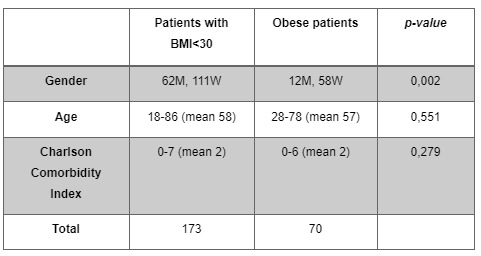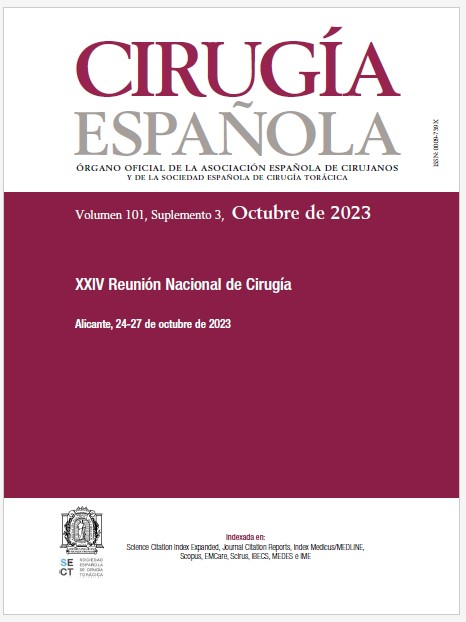P-204 - THE EFFECT OF OBESITY ON RECURRENCE AND COMPLICATIONS AFTER ANTI-REFLUX SURGERY
Centro Hospitalar Universitário de São João, Porto.
Introduction: Gastroesophageal reflux disease affects almost 30% of the world's population. Obesity is an important risk factor for the development of GERD.
Objectives: Analyse the impact of obesity on recurrence and complications after anti-reflux surgery.
Methods: This was a retrospective study analysing all the patients who underwent anti-reflux surgery between 1st January 2014 and 31st May 2022. We used the t-test for independent samples and the Chi square test.
Results: During the time of the study, 243 patients underwent primary anti-reflux surgery. For 93.8% of the cases a Nissen fundoplication was performed. From the patients who underwent surgery, 28.8% were obese. The table summarizes the characteristics of the patients. From the 243 surgeries performed, there were 14 complications: 7 intraoperative complications, including 6 pneumothoraxes and 1 esophageal perforation and 7 in the early postoperative period, including 2 cases of hemoperitoneum. Only one of the complications happened in an obese patient. 30 of the patients had recurrence of the disease (12.3% of the cases), 11 of them were obese.

Conclusions: Both groups were comparable in the distribution of patients regarding age and Charlson index. There was a predominance of women in the obese group. In this study the anti-reflux surgery in obese patients was not associated with increased risk of complications or failures of the procedure. This data suggests that anti-reflux surgery can be performed safely in obese patients and with good outcomes.








